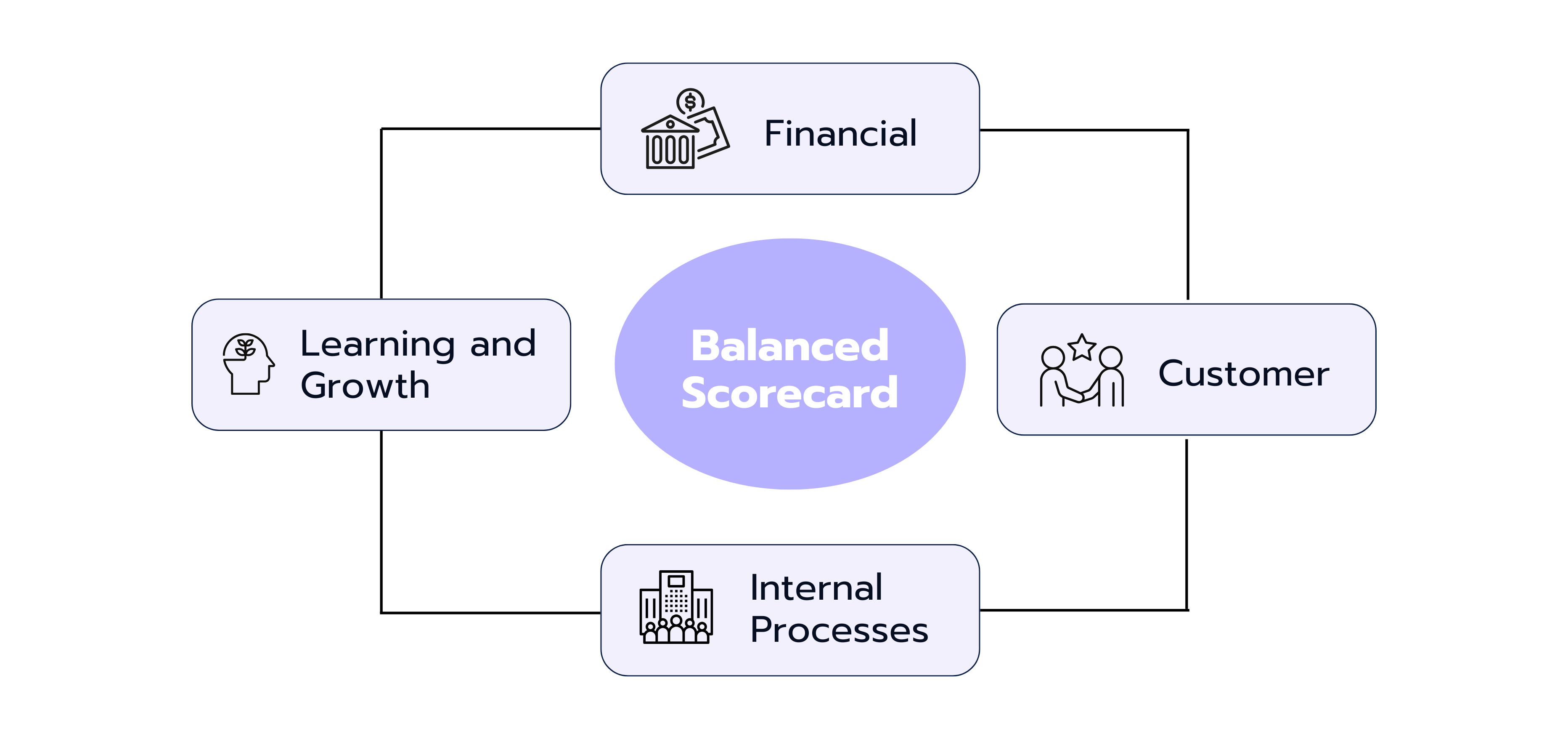When you start your career as a consultant, you'll encounter a lot of tools and frameworks. One of them is the Balanced Scorecard (BSC) – a strategic management tool that helps companies achieve their goals and improve their performance. 🚀
The Balanced Scorecard was developed in 1992 by Dr. Robert Kaplan and Dr. David Norton. Their idea was simple: Successful companies have a clear strategy based on four key areas.
The Four Pillars of the Balanced Scorecard
The brilliance of the Balanced Scorecard lies in its four perspectives, which ensure that a company’s strategy is balanced and comprehensive.

- The Financial Perspective looks at the financial goals and metrics of a company, asking: "How do we appear to our shareholders?"
- The Customer Perspective focuses on the question: "How do our customers see us?"
- The Internal Processes Perspective evaluates how efficient processes are and whether they meet customer needs. It asks: "Where should we excel?"
- The Learning and Growth Perspective focuses on personal development, including skills, training, leadership, and knowledge, asking: "How can we improve and create real value?"
These four perspectives provide a roadmap for companies to clearly visualize their strategies. As a consultant, this understanding will help you think strategically and maintain a clear overview. 💡
How is Progress Measured?
Once you’ve set goals for each perspective, it’s important to measure progress. This is where performance measures come in – the vital signs of a company.
This isn’t just about lagging (outcome) indicators, but also about leading (predictive) indicators that help steer change. It’s better to focus on a few important things that can truly drive change (hint: Pareto principle).
Why the Balanced Scorecard is Important in Consulting
As a consultant, you’ll often be tasked with solving complex business problems and driving strategic growth. The BSC helps you approach these tasks in a structured and systematic way. It offers:
- A comprehensive overview: You can look at a company’s performance from various perspectives – from finance to customer satisfaction to employee development.
- Strategic alignment: The BSC ensures that all employees, from management to front-line workers, are working towards the same goals.
- Measurable results: The BSC ensures that all actions are aligned with the company’s overarching goals, increasing the likelihood of success.
Another advantage of the BSC is its ability to foster clear and understandable communication within the company. The strategy is visually and comprehensively represented, which is especially beneficial in change management processes.
The Challenges and Limitations of the Balanced Scorecard
Despite its strengths, the Balanced Scorecard also has challenges. Creating and maintaining a BSC is time-consuming and requires continuous adjustments to keep up with changing goals and markets. Moreover, the BSC relies on accurate and up-to-date data; inaccurate information can lead to wrong decisions. Another downside is that the BSC focuses heavily on internal processes and may overlook external factors, such as market changes.
Why the Balanced Scorecard is Important for You as an Aspiring Consultant
As an aspiring consultant, the BSC will be a valuable tool in your consulting toolkit. It helps you support companies in:
- Fostering strategic alignment: You’ll help companies clearly define their goals and ensure that all employees are working towards them.
- Improving communication: You can help establish a common language within the company and avoid misunderstandings between departments.
- Achieving sustainable growth: With the BSC, it’ll be easier for you to promote balanced growth that considers both short-term and long-term goals.
Key Takeaways
The Balanced Scorecard is a great tool that will help you as a consultant take a holistic and strategic approach. It ensures a structured implementation of business goals, promotes sustainable growth, and helps you provide well-founded, measurable recommendations. The BSC could very well be your key to success as a consultant. ✨

